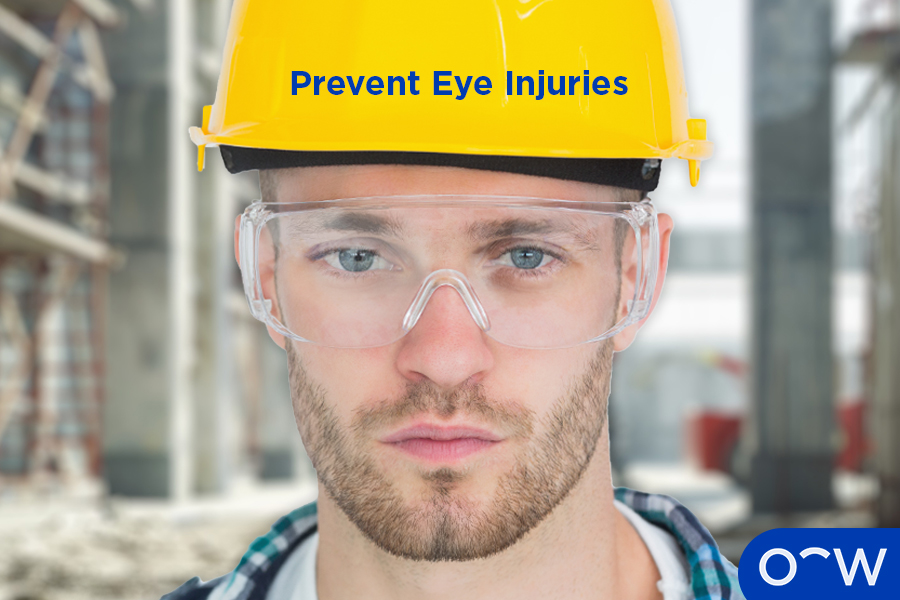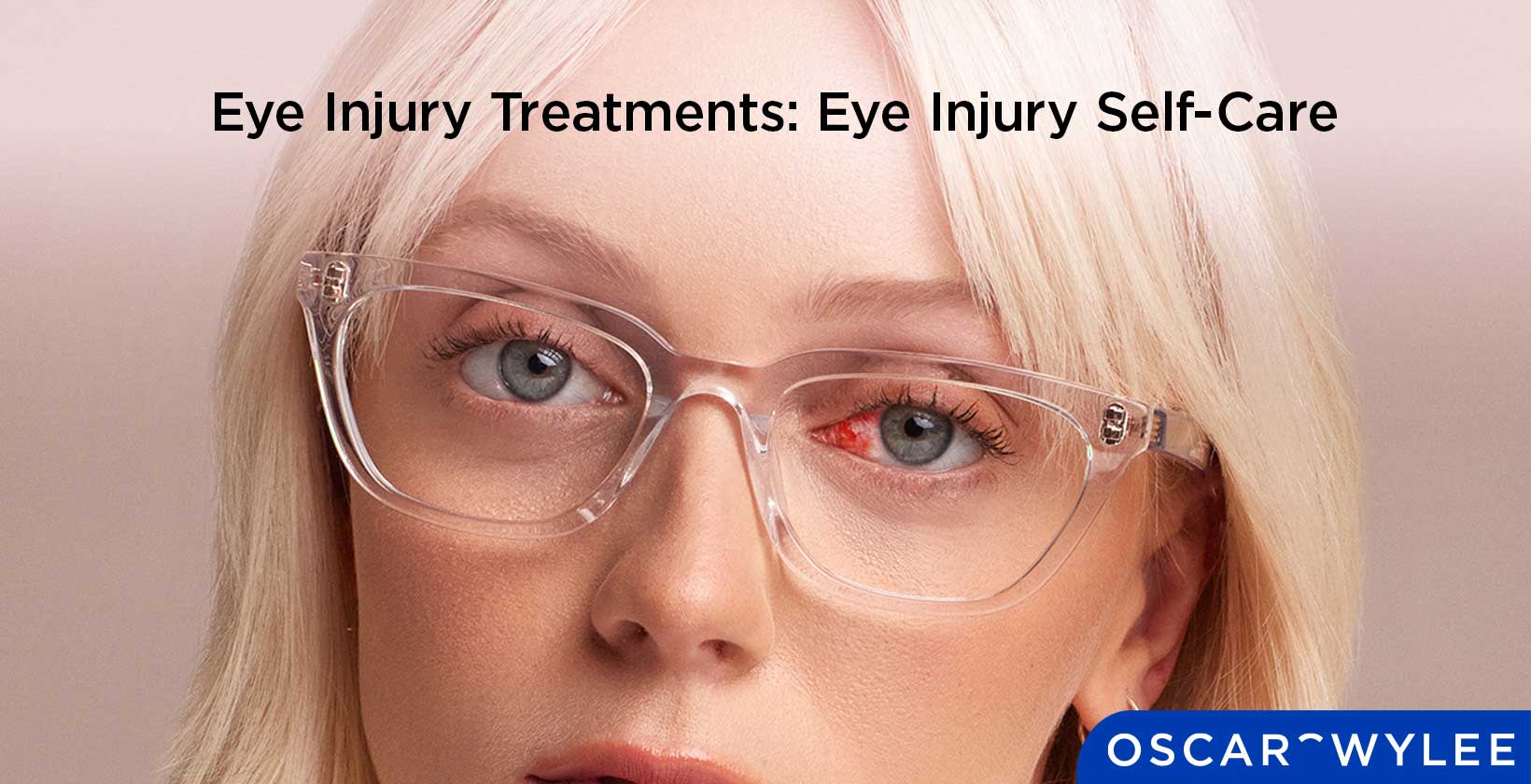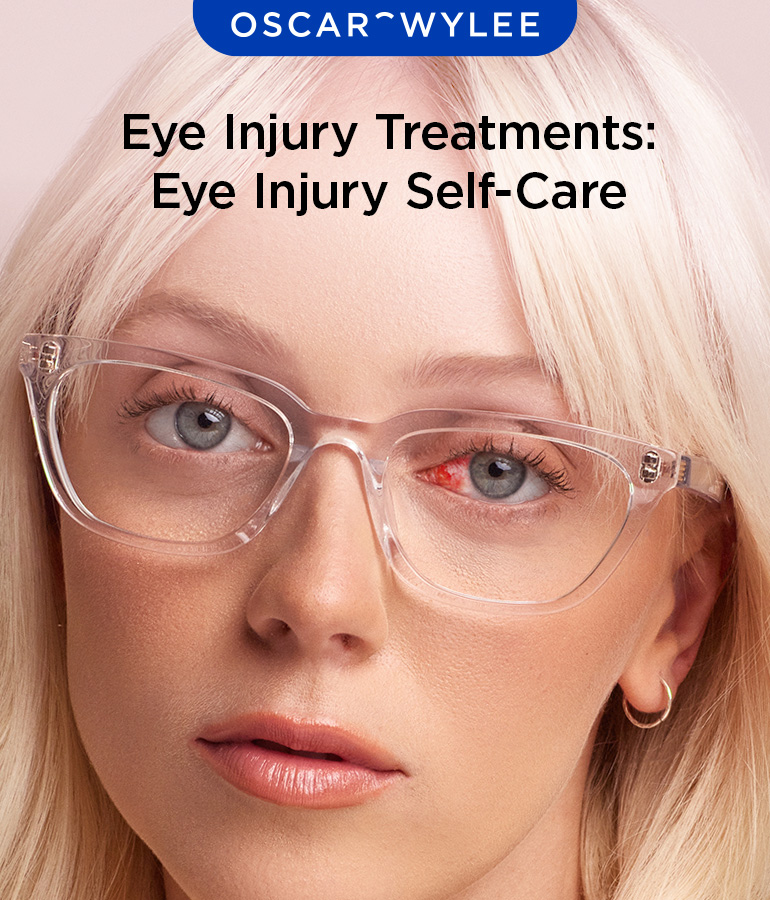Eye Injury Treatments: Eye Injury Self-Care
Published on September 24th, 2024
An eye injury refers to an injury in or around the eye area. Common causes of eye injuries include trauma to the eye, chemical splashes or radiation, cuts or scratches, or foreign objects in the eye. It is important to not try and treat an eye injury yourself and seek medical attention as soon as possible, as some can be serious. Caring for an eye injury yourself may result in further damage or infection. However, a person may take some self-care measures immediately after an eye injury to ensure the injury does not get worse. This can include seeking emergency eye care, avoiding removing objects stuck in your eye, avoiding touching or rubbing your eyes and avoiding applying medication without a medical prescription. The treatment for eye injuries will be dependent on the cause, and the severity of the injury, but can include antibiotics, lubricating eye drops and in some cases, surgery to remove foreign objects. Treatment for eye injuries can be carried out by various medical professionals including optometrists, and eye doctors, also known as ophthalmologists. Keep reading to learn more about eye injuries and their treatment.
What is an Eye Injury?
An eye injury refers to an injury in or around the eye area. Eye injuries can include burns, bruises, bleeding in the eye and eye scratches. An eye injury should be treated by a medical professional as soon as possible. However, there are some measures a person can take immediately after an eye injury to take care of the eye, whilst waiting for medical care. These can include not removing foreign objects from the eye yourself, avoiding touching or rubbing the eye and avoiding applying any medication.
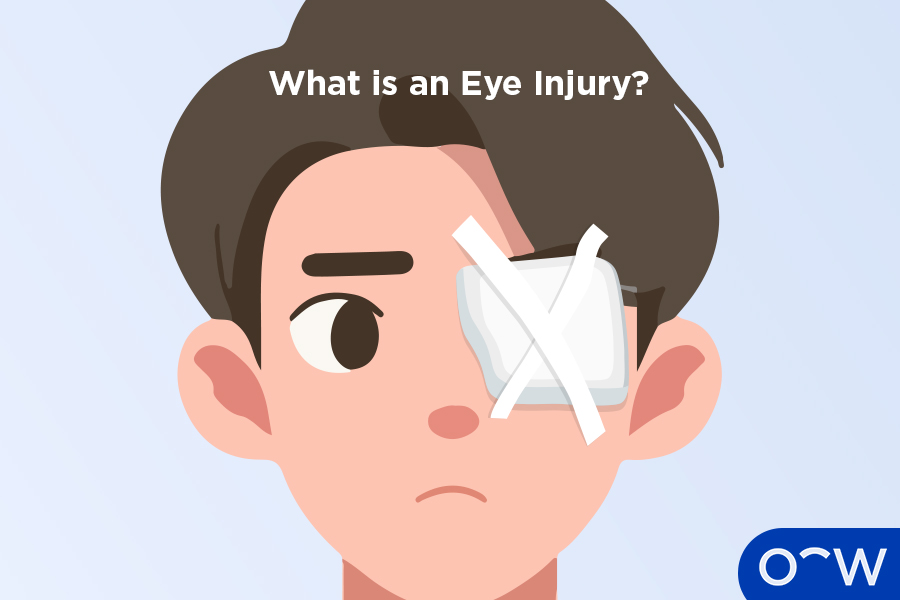

What are the Common Causes of Eye Injury and What are Their Treatments?
There are many potential causes of eye injuries including trauma to the eye, chemical splashes, cuts or scratches, or foreign objects in the eye. The symptoms of an eye injury can include pain, burning, redness, swelling and vision changes. The treatment for eye injuries will be dependent on the cause, and the severity of the injury. It is important to seek medical attention as soon as possible if you believe you have an injury to the eye so you can receive the appropriate treatment. The common causes of eye injuries and their treatments are listed below.
- Eye injuries caused by trauma: Eye injuries caused by trauma can include orbital fractures, bleeding in the eye and bruising, with exact treatment depending on the type of trauma and its severity.
- Eye injuries due to chemical splashes: Eye injuries due to chemical splashes usually involve chemical burns and will be treated depending on the chemicals and severity of the injury.
- Eye injuries resulting from cuts or scratches: Eye injuries resulting from cuts or scratches can be common, with treatment depending on how bad the scratch is.
- Eye injuries caused by foreign bodies: Eye injuries caused by foreign objects in the eye can be serious and require immediate care by a medical professional.
1. Eye Injuries Caused by Trauma
Eye injuries caused by trauma are a common type of eye injury that can be caused through sports, fighting, or whilst working with potentially dangerous equipment. Trauma is usually categorised into two main areas; blunt force trauma and penetrating trauma. Blunt force trauma is a forceful impact against the body with an object that is dull. Blunt force trauma may cause eye injuries such as an orbital fracture, eye bruising and eye bleeding. Blunt force trauma can be caused by a hit to the eye during activities such as sports. Penetrating trauma refers to trauma in which an object pierces the body and creates an open wound. Penetrating trauma to the eye may occur if objects enter the eye, such as a piece of metal or debris whilst working with equipment. Treatment for eye injuries caused by trauma depends on which type of trauma has occurred and how severe. For example, someone who has encountered penetrating trauma, may need surgery and a course of antibiotics to prevent infection. Someone with a blunt force injury, say an orbital fracture, may need more conservative treatment such as pain relief and icing the area.
2. Eye Injuries Due to Chemical Splashes
Eye injuries due to chemical splashes occur when chemicals, either liquid or powder, come into contact with the eye, according to the Better Health Channel. Chemical splashes can result in eye injuries such as burns. Treatment for chemical splashes depends on the type of chemical that has touched the eye and how severe the injury. It is typically advised that a person should flush the eye following a chemical splash to try and clear the eye of the chemical. A medical professional will then usually irrigate the eye, and prescribe medication as needed. For example, antibiotics may be prescribed for chemical splashes, to prevent infection.
3. Eye Injuries Resulting from Cuts or Scratches
Eye injuries resulting from cuts or scratches can be a common type of eye injury caused when something touches the eye, gets trapped under the eyelid or can even occur if someone's fingernail catches the eye. Cuts or scratches that occur on the cornea may be referred to as corneal abrasions. According to the American Academy of Ophthalmology, eye scratches or corneal abrasions can heal on their own, however, it is important to see a medical professional so they can advise whether this is possible, or if treatment will be needed. Treatment for cuts and scratches to the eye can include antibiotics to prevent potential infections.
4. Eye Injuries Caused by Foreign Objects
Eye injuries caused by foreign objects can be common. Foreign objects refer to objects that should not be in the eye. Foreign objects can range from specks of dust, to wood chips or pieces of glass. Foreign objects in the eye should be treated by a medical professional or optometrist, who will remove the object surgically if needed. It is not recommended that a person removes a foreign object themselves, as this may cause further injury or infection. It is important that a person seeks medical attention as soon as possible as a foreign object in the eye may cause infection and vision loss if not treated.
Is there Medication for Eye Injuries?
Yes, there is medication and medical care available for eye injuries. The exact medical care a person will receive for an eye injury will depend on the injury and what caused it. For example, if a person has a mild, grade 1 chemical burn to the eye, mild antibiotic ointment may be prescribed, according to the American Academy of Ophthalmology. If a person has had a foreign body in the eye removed, medication such as antibiotic ointment may be prescribed to prevent infection, according to the Australian Family Physician.
How to Self-Care for Eye Injuries?
It is important to seek medical attention as soon as possible if you have an eye injury. A person should not attempt to treat an eye injury themselves, unless they are educated in how to do so, for example, have had training on how to flush the eye after a chemical splash. However, a person may take some self-care measures immediately after an eye injury and while waiting for medical care, to ensure the injury does not worsen. These include seeking emergency eye care, avoiding removing objects stuck in your eye, avoiding touching or rubbing your eyes and avoiding applying medication without a medical prescription. The ways to self-care for eye injuries are listed below.
- Seek emergency eye care: Seeking emergency eye care from a medical professional is an important step in caring for eye injuries.
- Avoid removing objects stuck in your eye: Avoid removing objects stuck in your eye as this should be done by a medical professional, to reduce further damage or infection.
- Avoid touching or rubbing your eye: Avoid touching or rubbing your eye if you have an eye injury, as this may irritate the eye or heighten your risk of infection.
- Avoid applying medication without a medical prescription: Avoid applying medication.
1. Seek Emergency Eye Care
The first thing to do when you have an eye injury is to seek emergency eye care from a medical professional. This could be at your local emergency room, doctor’s office or optometrist, depending on the severity of the injury. Certain workplaces may have their own emergency eye care, in the event of eye injuries from chemical splashes or radiation. For example, some workplaces may have emergency eye washing stations, where workers are trained in how to safely cleanse the eye after contact with a chemical. After cleaning the eye, a person must still seek emergency eye care from a medical professional.
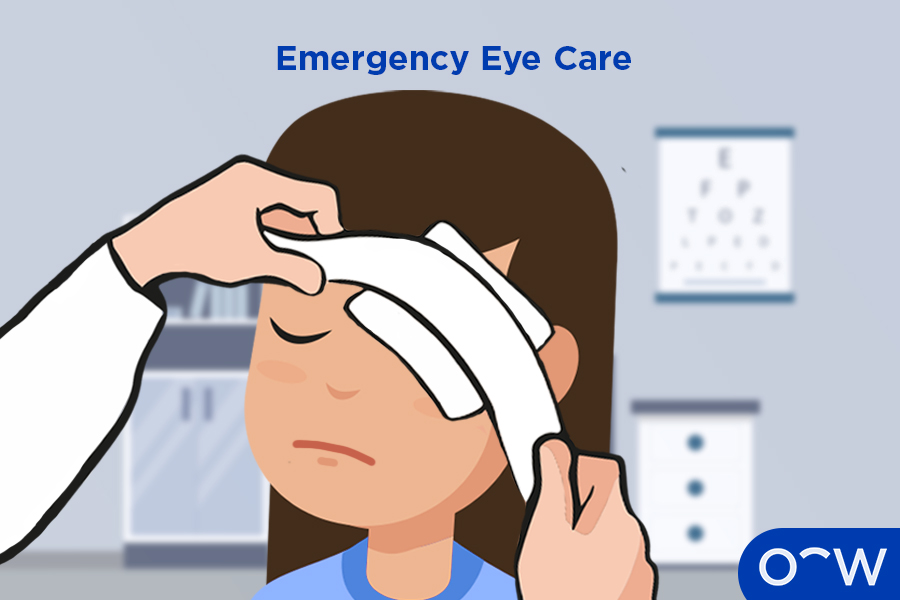

2. Avoid Removing Objects Stuck in Your Eye
Avoid removing objects stuck in your eye, as this is a process that should be done by a medical professional. According to the Better Health Channel, foreign objects in the eye can refer to a range of things that should not be in the eye, from specks of dust to larger objects such as a woodchip or piece of glass. Whilst small specs of dust may be blinked out of the eye, or washed out with plain water, for larger foreign objects, a person should seek medical attention as soon as possible. A healthcare professional will be able to remove the object with sterile instruments and prescribe medication to help prevent further damage or infection.
3. Avoid Touching or Rubbing Your Eye
Avoid touching or rubbing your eye when you have an eye injury as this can irritate the injury and make it worse. Whilst it may be tempting to touch or rub the eye after it has been injured, it is important that you refrain from doing so, and let a medical professional see to the eye. It may be beneficial with some eye injuries to ice the area if it has endured trauma, or to wash the eye with sterile water if there is dust irritating the eye, but it should not be touched or rubbed beyond this as you could risk irritating the eye or causing infection.
4. Avoid Applying Medication Without a Medical Prescription
Avoid applying medication to an eye injury without a medical prescription or before seeing a medical professional. Whilst some medication can help heal an eye injury, only a medical professional will be able to tell you the right medication and how to use it. It is important you wait until you see a medical professional before using any medication on the eye, to prevent further complications.
How Can Eye Injuries Affect Vision?
The way an eye injury affects vision will be dependent on what eye injury a person has. If a person has broken their eye socket, known as an orbital fracture, for example, their vision may be temporarily affected as the fracture and subsequent swelling can affect how the eye sees and functions. Visual symptoms of an orbital fracture include reduced or double vision.
Can Eye Injury Lead to Glaucoma?
Yes, in some cases an eye injury can lead to a type of glaucoma called traumatic glaucoma. Kellog Eye Centre, traumatic glaucoma can be caused by eye injuries that affect the drainage system within the eye. If the eye can not drain fluid properly, this fluid can build up, raising intraocular eye pressure, and damaging the optic nerve, leading to glaucoma.
Can an Eye Injury Cause Cataracts?
Yes, in some cases an eye injury can cause traumatic cataracts. According to an article by Okoye and Gurnani, traumatic cataracts are a common occurrence after blunt or penetrating trauma. Cataracts refers to an eye condition in which the lens of the eye clouds, making it hard to see. If a person has had an injury to the eye, it can lead to lens damage that causes cataracts.
Can an Eye Injury Heal on Its Own?
Whether an eye injury heals on its own is dependent upon what the eye injury is. Injuries such as bruising and swelling may heal on their own. However for traumatic or penetrating injuries, like those caused by foreign bodies in the eye, treatment from a medical professional will be needed.
Does Wearing Eyeglasses Prevent Eye Injuries?
While eyeglasses will not generally provide much protection from eye injuries, specially designed protective safety glasses can help prevent them. Prescription or non-prescription glasses, such as optical glasses or sunglasses, may provide some eye protection as they act as a barrier between the eye and the environment. However, this is not their primary use. Safety glasses are a type of protective eyewear designed to prevent eye injuries specifically. Safety glasses are made with special materials, such as polycarbonate, to protect the eyes against foreign objects, as well as dangerous liquids such as chemicals.
